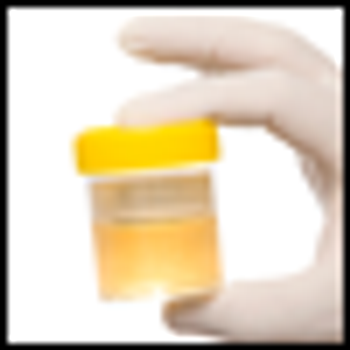
Every case of patient violence against clinicians provides lessons to be learned in safety management. Here: some key points that can enhance physician safety and help minimize the risks.

Every case of patient violence against clinicians provides lessons to be learned in safety management. Here: some key points that can enhance physician safety and help minimize the risks.

Apart from the lack of evidence supporting their use, is there any reason not to use patient opioid agreements and urine drug testings?

A large new study from Australia found that DSM-5 would cause a sky-rocketing 60% increase in the rate of alcohol use disorders.

Gary Greenberg, PhD is a psychotherapist, author, teacher, and historian of psychiatric diagnosis. His writings are characterized by penetrating insight, elegant wordsmithing, entertaining story telling, and a dig-deep, no-holds-barred search for underlying meaning.

Recently, the Substance Use Disorder Work group of the DSM-5 announced the inclusion of “craving” in the diagnostic criteria for all substance use disorders despite its lack of empirical support from the very analyses conducted by that Workgroup. In addition, no detailed literature review supports the decision to make “craving” a core symptom of Substance Use Disorder syndromes.

Sometimes, when I recommend an antidepressant, patients will ask if it will make them happy. No, I usually eventually answer. I try to gently and empathically point out that what we have are called antidepressants. They are not called happy pills for a good reason.

The team approach to dementia psychiatry services requires leadership for direction, decision making, and policy changes in order to make the process efficient and beneficial for all involved.

Although acute pain typically resolves on its own with little need for intervention, for some persons pain persists past the point where it is considered an adaptive reaction to injury.

Just what exactly are university and college students being taught about the history of psychiatry these days? We editors at H-Madness were interested in finding out.

It is not surprising that one of the most complicated aspects of collaboration with faculty and staff in the ED setting is the professional or social contract.

In a question-and-answer discussion with Dr Phillip Resnick, clinicians gained valuable insights into the legalities of psychiatry and how best to treat patients and protect the public (and themselves).

As I was driving to work on February 10, 2010, I listened to the National Public Radio host Melissa Block talking about how children labeled “bipolar” may get a new diagnosis. I was shocked that the chair of one of the DSM5 work groups, David Shaffer, MD, would discuss a controversial diagnostic topic with the media.

The DSM does and must involve both science and pragmatism. It must use the science that is available, but it must also make countless judgment calls that are not grounded in solid empirical evidence-and surely it makes sense to consider practical consequences in doing the latter.

Every year, more than 1 million children are exposed to sexual or physical abuse or neglect in the US. The research summarized here clearly demonstrates that exposure to stress before adulthood can result in persistent effects on both mental and physical health.

Would you be surprised to find out that Freud is gaining a foothold in China? As psychoanalysis and related therapies are slipping in the USA, psychoanalysts from the US are beginning to train a cadre of interested clinicians in China.

Our study suggests that most delusional patients, even those with high positive symptom scores, may have at least 1 RFD that precedes a clinical intervention specifically directed toward encouraging doubt. These preexisting “islands of doubt” may offer a useful foothold to begin the CBT process.

This essay does not proffer a change in the classification of specific conditions but will sketch a new meta-concept of evaluative disorders that encompasses a number of prevalent and serious psychiatric diagnoses.

It is well known that black people, compared to white people, are much more likely to be diagnosed as suffering from ‘schizophrenia’ if they are seen at psychiatric units in the UK or USA. .

What routine screening for alcohol abuse is recommended to avoid alcohol-related psychiatric emergencies in older adults? How will the presence of additional staff members affect an agitated patient in a psychiatric emergency? These and more in this week's quiz.

Clearly, we all share the goals of respecting-not “medicalizing”-ordinary grief; as well as recognizing and treating clinically significant depression. We differ with Dr Frances in how to achieve these goals, while remaining faithful to the best available scientific data.

Dr Stone's vivid description of the military's abusive use of ECT 50 years ago -- while compelling to read from an historical perspective -- should in no way be confused with ECT today.

The DSM-5 Work Group that first suggested the inclusion of “Psychosis Risk Syndrome” has halfway come to its senses. It has dropped this stigmatizing name in a last ditch repackaging effort to salvage the proposal.

A 3-year study involving over 3,000 patients used motivational interviewing to counsel adolescents about staying away from potentially violent and alcohol-related situations. It was found that these brief sessions “reduced by half the chances that teenagers would experience peer violence or problems due to drinking.”

Patients on average spent between 1 and 8 hours per day preoccupied with negative thoughts about their perceived [mal]odor.

There are very real concerns about the miners’ mental well-being. Chile’s Health Minister reported that five of the men were not eating properly and refused to be filmed. In the meantime, a team of nutritionists and psychologists have been assembled to monitor their physical and mental states.